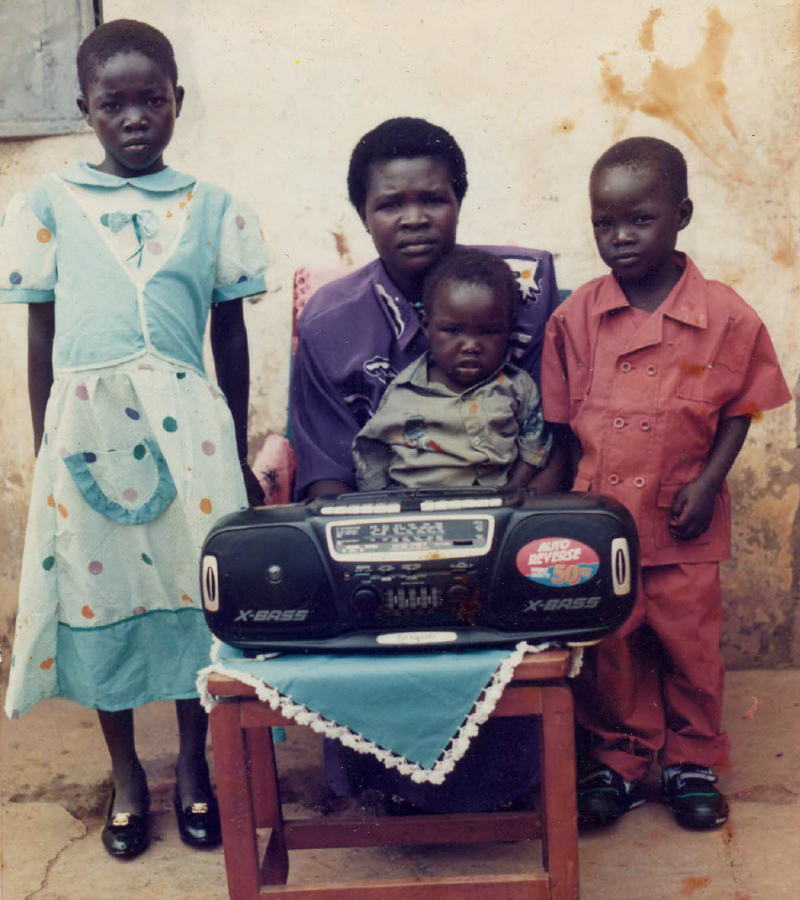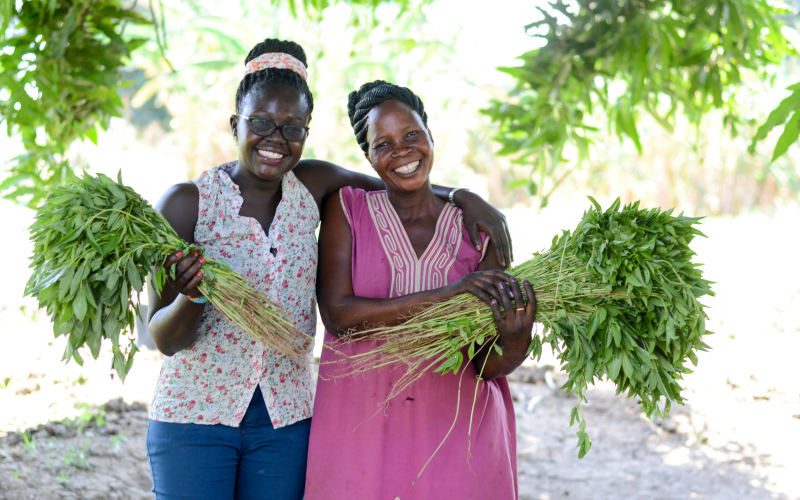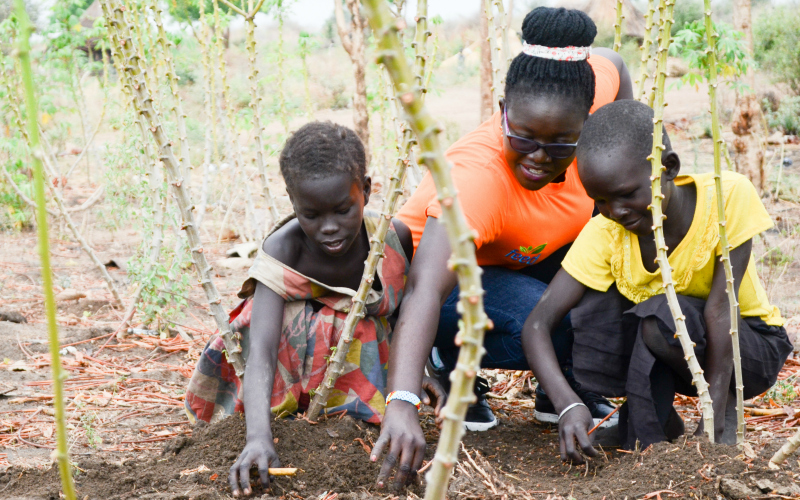"In my country, everything depends on women: feeding the family, taking care of the children, going to the garden. I always tell people that if we educate women, there will be no hunger in the whole world."
By Aryemo Sunday Ocaya as told to Megan Radford.
I was just two years old when the 21-year war began in South Sudan. I was small, but I can still remember part of it from the stories that my mother used to tell me.
My mother told me that she carried me on her back for almost two weeks in the bush.
We had to move all the way to the northern part of Uganda, where we took refuge. On our arrival at the camp, the UN agencies were not registering, and we had nowhere to sleep. We had no food to eat. But after a week, they came and registered us and they gave us shelter.
A life-saving chance
When I was five, the UN agency gave us an opportunity to go to school. The education was free until I finished primary school. Then I needed to pay fees.
My parents got a small piece of land at the camp so they could grow a few crops, and they sold them in the markets. The little money they got from sales is what they used to pay for my fees and a few scholastic materials.
My brothers and sisters couldn’t go to school. They were giving me the chance. My father believed that if he educated me, I would help him educate the others, because I was the eldest.
 A photo of me (left) with my mother and two of my younger brothers at the refugee settlement in Uganda. Photo/Areyemo Sunday Ocaya
A photo of me (left) with my mother and two of my younger brothers at the refugee settlement in Uganda. Photo/Areyemo Sunday Ocaya
It wasn’t easy, because I had friends who dropped out and got married at a very tender age. At the camp, there were a lot of peers who would confuse them, and they got taken up with the idea of marriage.
My father got concerned about the rate at which my friends were dropping out. So every day, he sat me down and talked to me. He advised me on how important my education would be in the near future. So I kept on. Because I’m from a Christian family, I prayed, and it gave me the strength to push on.
I turned out to be very bright! I think that was just God’s blessing for me. So the government of Uganda gave me an opportunity to study on its support. That’s how I managed.
Ripple effects
I returned to South Sudan when I finished my undergraduate in 2013. At the moment I’m pursuing my MSc in Agronomy, and I work for the FEED project in South Sudan.
FEED stands for Fortifying Equality and Economic Diversification, and is funded by Canadians through the Canadian government. It empowers women and families through agriculture, market access, and by raising awareness of the consequences of gender-based violence.
From the salary I earn, I feed my brothers and sisters and also pay their school fees. It’s not easy, but I feel so proud that because of my education, I can support them. Otherwise it wasn’t going to be easy for them to see the light. My father now keeps telling me that I have done a lot for the family that he couldn’t have done.
I study agriculture because I grew up with a love for farming. I’ve been farming since I was born. When I was a baby, my mother would carry me along to the garden with her every single day.
My love of agriculture increased when I looked at my country and saw the rate at which people are going hungry. We have a very big land to practice farming, yet there are people who go with just one meal a day.
Women taking charge
I’m just so excited about what I’ve done with the community in South Sudan. From what I’ve learned in school, and trained the community in, their food production has changed. We used to be importing vegetables, and it was very expensive. But now, the women’s group formed by FEED is the main supplier of vegetables in the capitol city of Juba.
 Josephine is one of the mothers from the community I work with. “These seeds have really helped us. The harvest was good, we earned money from taking some produce to the market,” Josephine told me. Photo/Mark Nonkes
Josephine is one of the mothers from the community I work with. “These seeds have really helped us. The harvest was good, we earned money from taking some produce to the market,” Josephine told me. Photo/Mark Nonkes
Initially, when I arrived, most women couldn’t believe that one of their own could come back and teach them. But now they accept it.
What’s more, young girls in the community are inspired by me. I normally talk to them when we have trainings. I advise them on how they should continue in school, and in the future, change their lives. I tell them that I wasn’t lucky, I just concentrated! We are living in a hard time in South Sudan, but they have to keep on. Most of the girls from the families we are supporting are in school. They want to be like me in the near future.
I’m also giving the community trainings on gender. These trainings have really changed their perspective in the way they look at women.
In the past, it wasn’t so easy for the women. A woman couldn’t make a decision in the family. A woman couldn’t own land. Everything was owned by men.
But ever since FEED started, all that has changed. Now, women take care of their own money. The women say that the men listen to them, they give them the opportunity to voice an idea, and sometimes will support it if it’s the right way. They are being elected as leaders. Even gender-based violence has reduced.
Educate a girl and feed the world
In my country, everything depends on women: feeding the family, taking care of the children, going to the garden. Every productive work is done by women.
I believe if you give a girl a chance, we can do a lot of useful things that men cannot do. Women have a different heart. I always tell people that if we educate women, there will be no hunger in the whole world.
 The children like to get involved in the garden as well. Photo/Mark Nonkes
The children like to get involved in the garden as well. Photo/Mark Nonkes
My dream is to change the system. Because of my education, I see that it is me who can support my people. It is me who can help them learn how to grow food the right way. It’s me who can do away with the hunger we are going through.
Sunday is part of a world-changing movement that knows no boundaries. Be a part of the change, and support those living in conflict zones like South Sudan through Raw Hope.